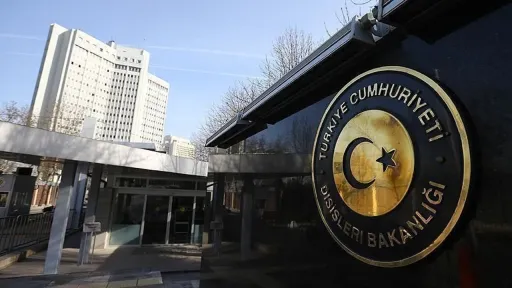South Sudan’s Minister of Trade and Industry, Atong Kuol Manyang, has reaffirmed her country’s commitment to advancing mutually beneficial trade and investment relations with Türkiye, describing the partnership as one built on “trust, shared prosperity, and a common vision for development.”
Speaking at the Ministerial Meeting of the Türkiye-Africa Fifth Economy and Business Forum, held under the theme of “Leveraging Türkiye-Africa relations for mutual gains”, Manyang emphasised the historic and growing ties between the two nations.
“Türkiye was among the first nations to recognise South Sudan’s independence in 2011,” she recalled, noting that Ankara’s swift upgrade of its consulate in Juba to a full embassy, followed by Juba’s establishment of its own embassy in Ankara, marked the beginning of a new era in bilateral friendship and cooperation. “Since then, our relations have deepened across diplomacy, trade, infrastructure, and human development,” she added, highlighting Turkish Airlines’ direct flights between Juba and Istanbul as a gateway for commerce, tourism, and cultural exchange.
Manyang praised Türkiye’s ongoing role in agriculture, construction, energy, and education, pointing to Turkish expertise in irrigation and food processing that is “helping unlock the potential of South Sudan’s fertile lands.”
'Open for investment'
She further commended the efforts of TİKA, the Turkish Red Crescent, and private investors whose contributions, she said, “stand as a model of partnership founded on mutual respect and shared benefits.”
Looking ahead, the minister urged for “a higher level of productivity, innovation, and inclusive growth” within the Türkiye-Africa partnership, anchored in the African Continental Free Trade Area (AfCFTA). She proposed the creation of a dynamic Türkiye-South Sudan economic corridor focused on value addition and supply chain development in agriculture, logistics, renewable energy, and mining.
“South Sudan is open for investment,” Manyang affirmed. “We are a young nation with abundant minerals such as gold and limestone, vast agricultural land, forestry, fisheries, and one of Africa’s largest livestock herds-over five million cattle. It is even said that fish in our rivers die of old age,” she remarked, drawing laughter and applause for her lighthearted yet vivid illustration of the country’s untapped potential.
She outlined her government’s commitment to transparency, investor confidence, and industrialisation, with a focus on empowering small and medium-sized enterprises, the backbone of South Sudan’s economy and a key driver of youth and women’s employment. “A structured Türkiye-AfCFTA investment framework,” she said, “will allow both sides to move from exporting raw materials to producing finished goods that create sustainable value and jobs.”
Longstanding diplomatic and cultural
Manyang reminded delegates of the longstanding diplomatic and cultural ties between South Sudan and Türkiye. She noted Türkiye’s participation in South Sudan’s Independence Day celebrations on July 9, 2011, led by then-Minister of Development Cevdet Yılmaz, and the subsequent establishment of embassies in both capitals by 2012. In 2015, President Salva Kiir attended Türkiye’s 100th Anniversary of the Battle of Canakkale, reflecting a growing friendship anchored in mutual respect and historical solidarity.
Since the early 1990s, hundreds of South Sudanese students have benefited from Türkiye Scholarships, continuing their education in Turkish institutions-an enduring investment in South Sudan’s human capital.
“In these times of global uncertainty,” Manyang concluded, “our partnership with Türkiye stands as a beacon of trust, cooperation, and shared destiny. From the echoes of history to the promise of our shared future, Türkiye will always remain a trusted partner and friend of South Sudan. Together, we will build bridges that lead to sustainable progress for our people and our continent.”
























